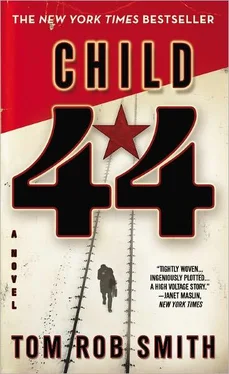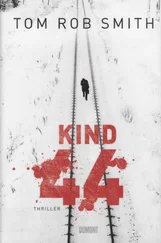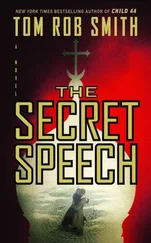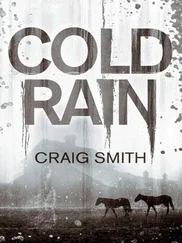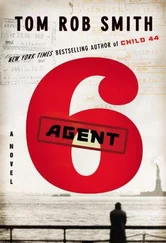Walking through the water, moving at a much slower pace, they frequently stumbled and fell; each time it was harder to get up. Not even the adrenaline from being hunted could sustain them. Leo was careful not to let the web wash off his arm, keeping it raised. So far neither of them spoke about their predicament, as though their existence was on too short a lease to even make plans. Leo guessed that they were about two hundred kilometres east of Moscow. They’d been on the train for almost forty-eight hours. Speculatively this put them somewhere near the town of Vladimir. If he was right then they were now travelling in the direction of Ryazan. Ordinarily from this point, travelling by train or car, Rostov was at least a twenty-four-hour journey south. However, they had no money, no food; they were injured, dressed in filthy clothes. They were wanted by every national and local State Security apparatus.
They came to a stop. The river flowed in between two halves of a small village, a collective farm. They stepped out of the water, some five hundred paces up stream from the huddle of houses. It was late, light was fading. Leo said:
— Some of the villagers will still be working; they’ll be on their land. We can sneak in, unnoticed, see if we can find some food.
— You want to steal?
— We can’t buy anything. If they see us, they’ll hand us in. There’s always a reward for escaped prisoners, far more than these people make in a year.
— Leo, you’ve worked in the Lubyanka for too long. These people have no love of the State.
— They need money like everyone else. They’re trying to survive like everyone else.
— We have hundreds of kilometres to cross. We can’t do it alone. We just can’t. You must realize that. We have no friends, no money, nothing. We have to convince strangers to help us — we’ll have to sell them our cause. That’s the only way. That’s our only chance.
— We’re outcasts, harbouring us will get them shot, not just for the individual who helps us but the entire village. State officials wouldn’t think twice about sentencing all of them to twenty-five years, deporting the whole population, children included, to a northern encampment.
— And that’s exactly why they’ll help us. You’ve lost faith in the people of this country because you’ve been surrounded by the people in power. The State doesn’t represent these villages, it doesn’t understand them and it doesn’t have any interest in them.
— Raisa, this is city-dissident talk. It’s not relevant to the real world. It would be insanity for them to help us.
— You have a short memory, Leo. How did we just escape? We told the inmates of that carriage the truth. They helped us, all of them, several hundred, probably about the number that live in this village. The prisoners in our carriage will almost certainly face some sort of collective punishment for not alerting the guards. What did they do it for? What did you offer them?
Leo remained silent. Raisa pressed her point.
— If you steal from these people, you’ll be their enemy when we are in fact their friends.
— So you want to walk into the centre of the village, as if we were family, and greet them?
— That’s exactly what we’re going to do.
Side by side, they walked into the centre of the village as if they were returning from work, as if they had a right to be here. Men and women and children gathered around them, surrounding them. Their houses were made of mud and wood. Their farm equipment was forty years out of date. All they had to do was turn them over to the State and they’d be richly rewarded. How could they refuse? These people had nothing.
Encircled by hostile faces, Raisa spoke up.
— We’re prisoners. We’ve escaped from the train transporting us to the Kolyma region, where we would’ve died. We’re now being hunted. We need your help. We ask for this help not for ourselves. Eventually we’ll be caught and killed. We’ve accepted that. But before we die there is one task we have to perform. Please let us explain why we need your help. If you don’t like what we tell you, then you should have nothing to do with us.
A man stepped forward, in his mid-forties, an air of self-importance about him.
— As chairman of this kolkhoz , it is my duty to point out that it would be in our best interests to turn them over.
Raisa glanced at the other villagers. Had she been wrong? Had the State already infiltrated these villages, planted their own spies and informers in the management system? A man’s voice called out.
— And what would you do with the reward, hand that over to the State too?
There was laughter. The chairman went red, embarrassed. Relieved, Raisa realized this man was a comic figure, a puppet. He wasn’t the real authority. From the back of the crowd an elderly woman spoke out:
— Feed them.
As though an oracle had spoken, the debate was over.
They were led into the largest house. In the main room, where food was prepared, they were seated and given cups of water. A fire was stoked. All the while their audience grew until the entire house was crowded. Children filled the spaces in between the adults’ legs, staring at Leo and Raisa as children might stare in a zoo. Fresh bread, still warm, was brought from another house. They ate with their wet clothes steaming in front of the fire. When a man apologized for not being able to offer them a new set of clothes, Leo merely nodded, disorientated by their generosity. He could offer them a story; that was it. Finishing his bread and water, he stood up.
Raisa watched the men, women and children as they listened to Leo. He began with the murder of Arkady, the young boy in Moscow, a murder he’d been ordered to cover up. He spoke of his shame at having told the boy’s family that it was an accident. He went on to explain why he was expelled from the MGB, sent to Voualsk. He explained his amazement when he’d found another child had been murdered in almost exactly the same way. The audience gasped, as though he was performing some magic trick, when they were told that these murders were being committed across their entire country. Some parents ushered their children out of the house as Leo warned them of what he was about to describe.
Even before Leo had finished his story his audience had formed ideas as to who could’ve been responsible. None of them supposed these murders were the work of a man with a job, a man with a family. The men in the audience found it hard to believe that this killer couldn’t be immediately identified. All of them were certain they’d know he was a monster just by looking him in the eyes. Glancing around the room, Leo realized their perspective on the world had been shaken. He apologized for introducing them to the reality of this killer’s existence. In an effort to reassure them he outlined the murderer’s movements along the railways, through the major towns. He killed as part of his routine; a routine wouldn’t bring him into villages like this.
Even with these assurances, Raisa wondered whether or not these people would any longer be so trusting and welcoming. Would they feed a stranger? Or from now on would they fear that strangers were hiding some evil they couldn’t see? The price of this story was the audience’s innocence. It wasn’t that they hadn’t seen brutality and death. But they’d never imagined that the murder of a child could give pleasure.
It was dark outside and Leo had been speaking for some time, well over an hour. He was nearing the end of his story when a child ran into the house.
— I saw lights on the northern hills. There are trucks. They’re coming this way.
Читать дальше
